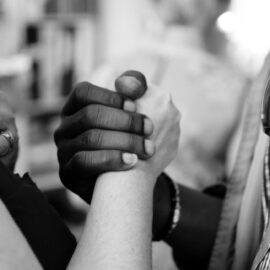

This article is an excerpt from the Shortform book guide to "The Defining Decade" by Meg Jay. Shortform has the world's best summaries and analyses of books you should be reading.
Like this article? Sign up for a free trial here .
What’s a positive personality? Do you need one in order to be successful?
A positive personality comes from being a type of person who invests in action, and looks toward the future. As you go through your twenties, you can learn to have a positive personality.
Keep reading to find out how you can gain a positive personality.
Cultivate a Positive Personality
In our twenties, our personalities can change more significantly than at any other time in our lives before or after. Although we often think of childhood or adolescence as the time when personalities are formed, it’s the decade of the twenties when we really start to become the people we’ll remain for the rest of our lives.
During their twenties, it’s not unusual for people to change from shy to confident or depressed to happy. Studies show that very often, life starts to feel better as you move through your twenties. As you grow into adulthood, you’ll get better at regulating your emotions, become more socially competent and responsible, and start to feel more agreeable about life in general. Because these changes happen when long-term careers and relationships are forming, they can greatly affect the trajectory of your life, and because your personality is so plastic during these years, you have an excellent opportunity to adopt a permanent, positive outlook on life.
Sometimes a person will try to find positivity by getting lost in her past—examining her upbringing as a child of divorce or her difficulties in high school, for example. This person might hope that by coming to terms with her past, she can adopt a happier outlook on life that will propel her into adulthood. While you definitely should examine the influences that made you who you are, dwelling on them isn’t going to ultimately move you forward, and a positive outlook, rather than being a prerequisite for adulthood, is often a product of it.
The best way to break the patterns of the past and cultivate a happy outlook is not through reflection but through action. By actively investing in your adulthood—pursuing opportunities, gaining experience, and achieving small successes along the way—you will craft a satisfying future.
Just the process of making goals can make you happier. When a person is purposefully working toward goals, she’s happier even if she doesn’t immediately succeed at the goals. The process itself gives her a sense of purpose. Twenty-somethings who feel even a small amount of personal or financial success feel more positive and confident than those who don’t. In contrast, twenty-somethings who don’t feel they are making progress toward a goal often feel stressed and alienated.

———End of Preview———
Like what you just read? Read the rest of the world's best book summary and analysis of Meg Jay's "The Defining Decade" at Shortform .
Here's what you'll find in our full The Defining Decade summary :
- Why the twenties are your most important decade
- How you were fooled into thinking it was an extended period of youth and freedom
- Why you should use this decade to find personal and professional success






